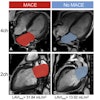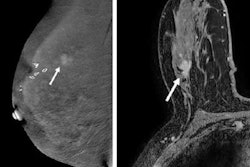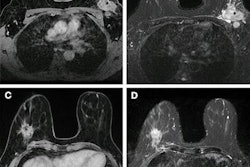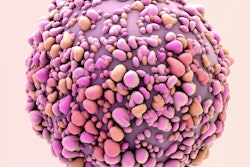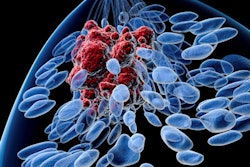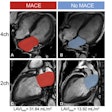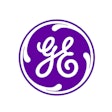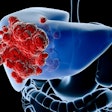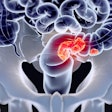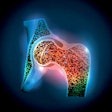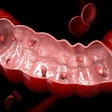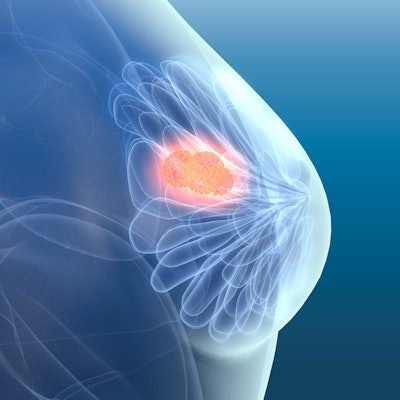
An AI algorithm that incorporates data from a particular MRI imaging biomarker called intratumoral heterogeneity (ITH) helps clinicians predict treatment response to chemotherapy for breast cancer, according to research published July 11 in Radiology.
The findings could help clinicians better manage a disease that tends to vary widely, wrote a team led by Zhenwei Shi, PhD, of Guangdong Provincial People's Hospital in China.
"Breast cancer is highly heterogeneous, resulting in different treatment responses to neoadjuvant chemotherapy among patients," the group noted. "A noninvasive quantitative measure of [biomarkers such as] intratumoral heterogeneity may be valuable for predicting treatment response."
Chemotherapy is the go-to treatment for women with locally advanced breast cancer, but patient response is inconsistent, with some research reporting rates of 19% to 30% success and 5% to 20% disease progression. There are currently no standard methods for accurately predicting response to chemotherapy in breast cancer patients, so Shi and colleagues sought to develop and test of whether an AI algorithm that combined pretreatment MRI-based ITH index data (ITH is a biomarker of tumor progression and metastasis), conventional radiomics, and clinicopathologic variables could address the problem.
The investigators conducted a study that included 719 women with breast cancer who underwent MRI before chemotherapy and surgery between January 2000 and September 2020. Of the total study cohort, 335 were in the algorithm's training dataset and 384 were in three external test sets.
The team found that the combination of molecular subtype, intratumoral heterogeneity index, and conventional radiomics score data was predictive of breast cancer response to chemotherapy, with the intratumoral heterogeneity index being the strongest factor.
| Factors affecting the odds of women achieving complete treatment response | |
| Measure | Odds ratio (with 1 as reference) |
| Intratumoral heterogeneity index | 30 |
| Conventional radiomics score | 29.9 |
| Molecular subtype | 4.76 |
The algorithm showed good performance for predicting positive response to chemotherapy in both the training data set (AUC, 0.9) and the external test data sets (AUC, 0.83), the authors reported.
The study findings represent another step toward tailored cancer treatment, as more accurate prediction of treatment response could help clinicians develop better strategies, wrote Gaiane Rauch, MD, PhD, of the University of Texas MD Anderson Cancer Center in Houston in an accompanying commentary.
"[A] growing body of research, including in the fields of radiomics and artificial intelligence, is bringing us closer to the ultimate goal of providing our patients with the most efficient and least toxic individualized treatment strategies," she wrote.
The complete study can be found here.



